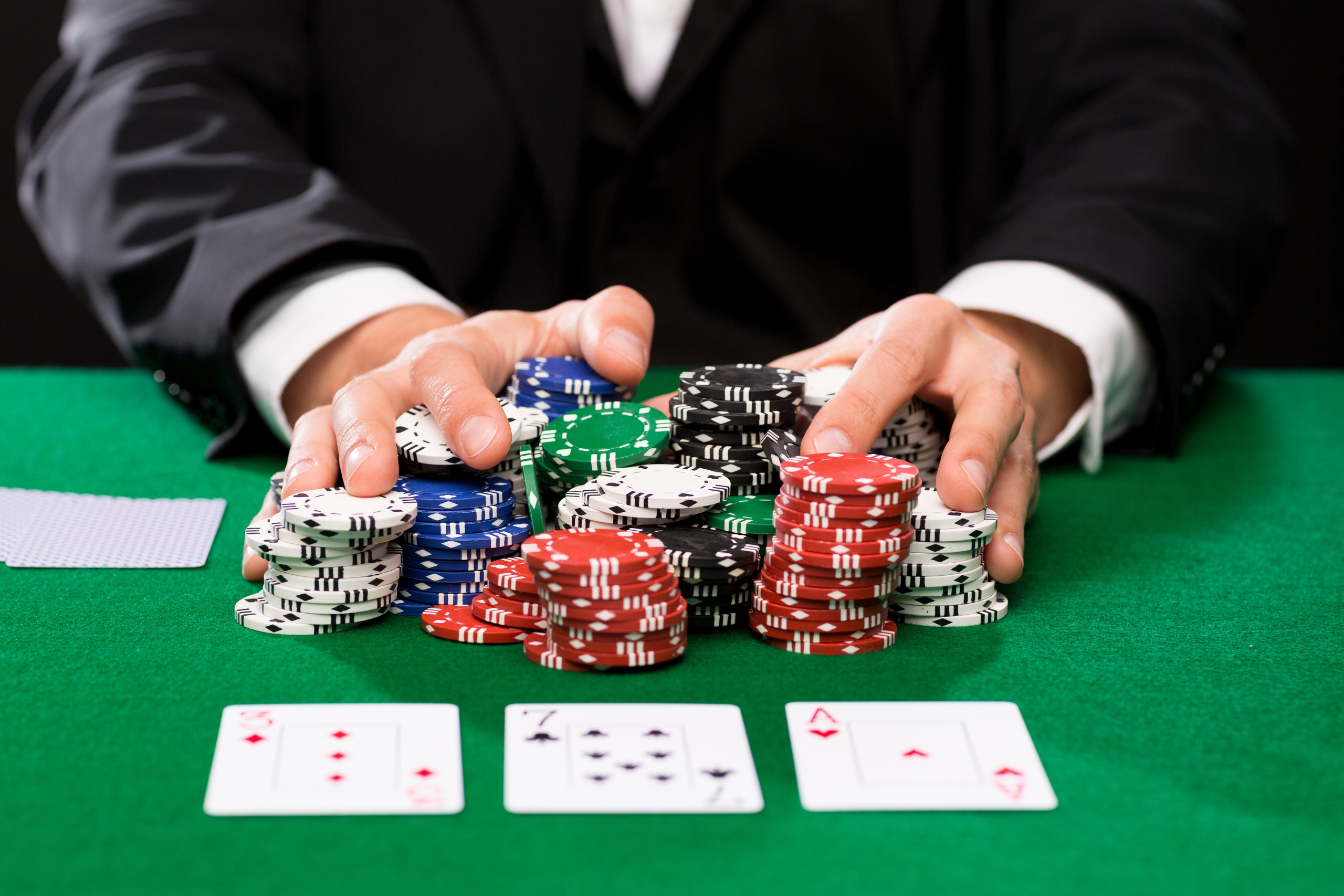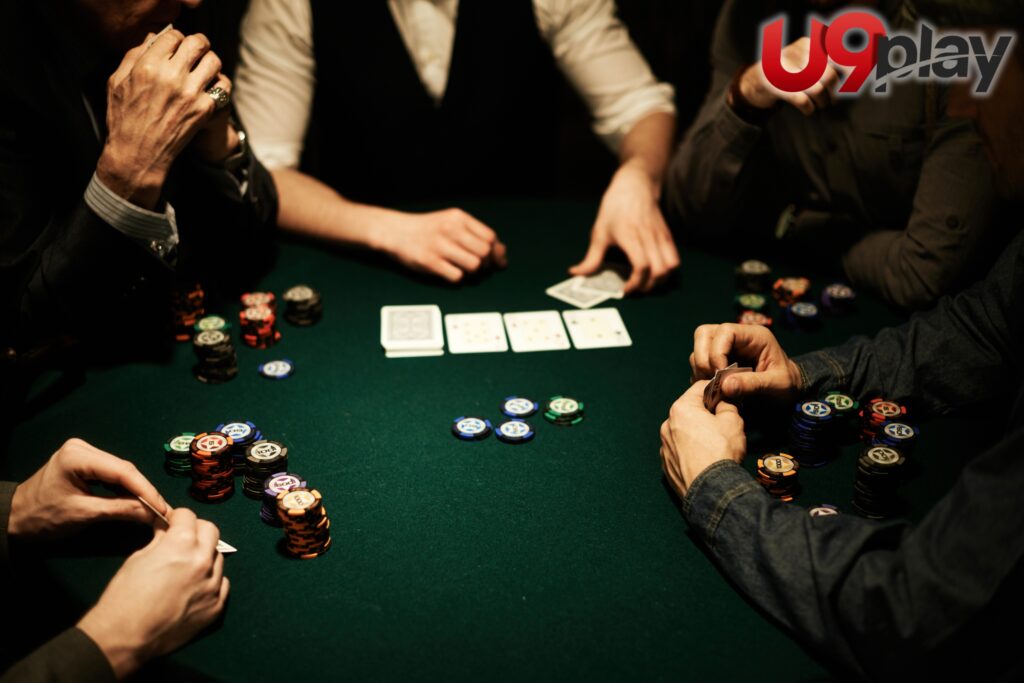Bluffs are among the most crucial online poker abilities that significantly influences play. It means misleading opponents by acting as if one has a stronger hand than one really possesses. Bluffing may lead to uncertainty and force adversaries to make poor decisions, therefore maximizing one’s chances of winning.
Bluffing greatly improves psychological poker abilities. It requires knowledge, intuition, and the ability to interpret opponent behavior and replies. Whether one chooses to bluff will depend on their hand quality, opinions about opponent abilities, and game dynamics. Good bluffing could cause opponent questions and worry that would lead them to fold even with a stronger hand.
This paper will discuss the benefits in online poker as well as how bluffing affects game. We will talk about the psychological aspects of bluffing and its use in poker strategy, therefore providing suggestions that will enable players enhance their bluffing techniques and increase their chances of winning at U9Play Casino.
Understanding Bluffing in Poker
In poker, bluffing is a strategy used to fool opponents by giving them false impressions of one having a better hand than one really has. It’s a means of tactically and strategically lying to get a benefit in the game. Unlike other poker strategies, bluffing depends more on trickery than on depending only on hand strength.
Bluffs of many kinds are available to players. A player bets or raises with a hand that is not presently the best but has potential to develop in a semi-bluff. This kind of bluff lets players keep their aggressiveness going and gives them the possibility to win the hand should the appropriate card be drawn. The pure bluff is another variation in which a player bets or raises with a poor hand unlikely to turn around. Pure bluffs generally rely on the opponent folding their hand because the bluffer has little opportunity of winning the pot.
Timing and context of bluffing are quite important in poker. The chances of winning are much increased by bluffing at the right moment—that is, when opponent folding is likely or when the board cards back the bluffer’s apparent hand strength. But bluffing against a strong opponent or at the wrong time might have devastating effects. Therefore, an effective bluff relies on your skill to examine opponent behavior and change your bluffing method.
Recognizing Opportunities to Bluff
Players trying to get an advantage in poker games on U9Play must first be able to recognize circumstances where bluffing might be successful. Bluffing is tricking opponent by betting or raising with a weak hand to force better hands to fold.
One should consider numerous factors before deciding to bluff. First, research of the table dynamics is really important. Bluffing works best when the opponent is wary and prone to give up quickly. Bluffing could not be as effective, therefore, against aggressive and loose opponents who are more likely to call or raise. Another vital knowledge is on opponent habits. It could be a good moment to bluff if opponent often fold to bets or avoid conflicts.
On U9Play, common bluffing areas in poker games consist of the pre-flop, post-flop, and post-turn phases. When players have a tight image and raise from early situations, pre-flop bluffs may be quite successful. Bluffs after a flip can result from the community cards seeming to have missed the opponent’s anticipated range. When a player has showed power all through the hand and may represent a strong hand, they use post-turn bluffs.
Understanding possibilities to bluff helps players to use the poker games offered by U9Play Casino, therefore generating an interesting and strategic atmosphere for those trying to optimize their chances of winning.
Executing Effective Bluffs
In online poker, there are many strategies that may help players increase their chances of success with running successful bluffs. First of all, one should pick deliberately the suitable opponent to bluff against. This means observing their overall level of ability as well as their inclination and playing technique. Bluffing against tight or inexperienced players might be more effective than attempting to bluff against more experienced or free players.
Good bluffs also rely on selecting appropriate betting levels. A well-sized bet might make opponents doubt a player’s hand strength, therefore increasing the likelihood of a good bluff. The secret is to find the ideal balance: spending enough to deter rivals away but not overbet, thus highlighting the bluff from opponent.
Another very vital component of making effective bluffs is maintaining a regular betting pattern. To stay from revealing any signals, players should try to make their bluffs match their regular betting pattern. One should remain cool-headed and fight letting emotions or anxiety show itself.
Dealing with Bluffs from Opponents
Bluffs from opponents in online poker games at U9Play Casino might provide difficulties requiring rapid reactions. These tips and strategies are aimed to help you navigate these conditions:
1. One should be calm as bluffs are a common tactic in poker and one should not let emotions distort his decision. Approach the game level-headed all through.
2. Watch closely the conduct and betting pattern of your opponent. Search for any changes from their regular play technique. This details could provide hints on the strength of their hand.
3. Trust your intuition; in poker, gut emotions may be very helpful. Should anything look wrong or your opponent’s actions seem dubious, you have a strong probability they are bluffing. Using your observations, trust your intuition and act purposefully.
4. Examining the community cards on the table will let you to decide if they back up the allegations of your opponent. They most certainly are bluffing if their predicted hand does not match the available cards.
5. Knowing their playing style and routine can help you to range your opponent. It will enable you to project their hand range. Should their activities deviate from their normal range, this might indicate a bluff.
6. Use psychology to fit your opponent’s actions. If they like lying, think about slow playing or encouraging them to take greater risks. This raises your possibility to get advantage from their bluffs.
These techniques and the knowledge gained from opponent behavior will enable you in online poker games at U9Play Casino make more reasonable judgments and handle bluffs.
The Psychology of Bluffing
Should anything look wrong or your opponent’s actions seem dubious, you have a strong probability they are bluffing. Using your observations, trust your intuition and act purposefully.
Examining the community cards on the table will let you to decide if they back up the allegations of your opponent. They most certainly are bluffing if their predicted hand does not match the available cards.
Knowing their playing style and routine can help you to range your opponent. It will enable you to project their hand range. Should their activities deviate from their normal range, this might indicate a bluff.
Use psychology to fit your opponent’s actions. If they like lying, think about slow playing or encouraging them to take greater risks. This raises your possibility to get advantage from their bluffs.
These techniques and the knowledge gained from opponent behavior will enable you in online poker games at U9Play Casino make more reasonable judgments and handle bluffs.
The Psychology of Bluffing centers on the idea of tricking opponents perceptions in a gambling environment—like U9Play gambling—while also Players deliberately bluff to fool their opponent into thinking they have a better hand than they really have, therefore luring them to fold and so win the pot.
Bluffing mostly depends on impressions of opponents. Competent players use their awareness of human psychology to take advantage of the doubts and worries of their opponent. Presenting a confident and commanding attitude can help a bluffer persuade opponents to question their own hand strength and act ill-wise.
Good bluffing calls for deliberate change of opponent impressions. Players have to pay great attention to their opponent, studying their behavior and betting patterns. Players may deliberately schedule and execute their bluffs to optimize success by examining and using the shortcomings of their opponent.
Mostly, bluffing asks for a calm and confident attitude. Exuding ambiguity or disquiet might warn adversaries of the possibility of a bluff, therefore compromising the effectiveness of the strategy. By maintaining calm under pressure and emulating the behavior of a player with a strong hand, bluffing might compel opponent to make risk-averse moves that assist the bluffer.
Conclusion
Ultimately, success at U9Play’s online poker rooms depends on honing the skill of bluffing. When bluffing, players should keep in mind elements such table location, opponent conduct, and bet size to refresh the main methods and ideas. In poker, bluffing is a weapon with great strength as it lets players fool their opponent and win pots they would not have otherwise won. Players should be conscious, therefore, that bluffing is a talent that calls both improvement and experience. The U9Play online poker games provide players the ideal forum to improve their bluffing skills. Regular practice and tests using many bluffing techniques can help players to become more confident and skilled in their capacity to bluff successfully. Thus, welcome the challenge and seize the chances to bluff at the U9Play online poker rooms.

